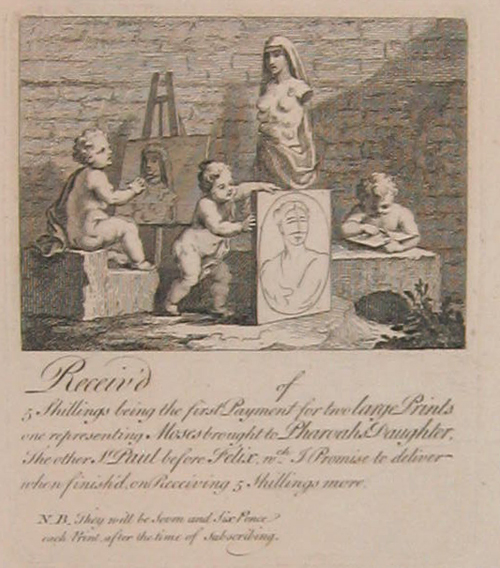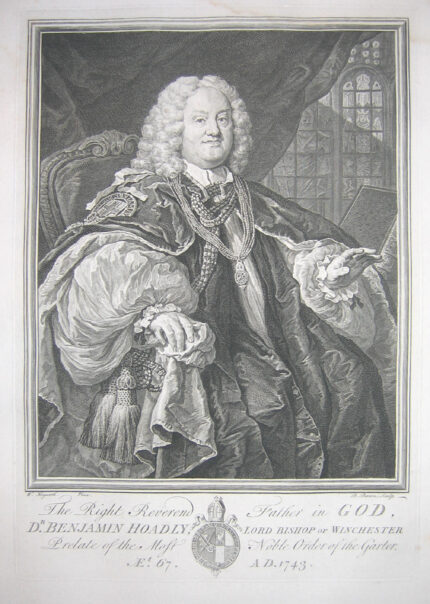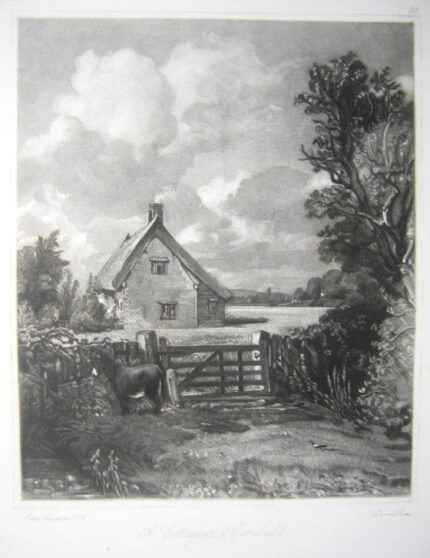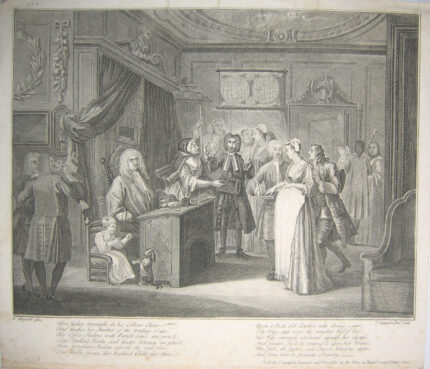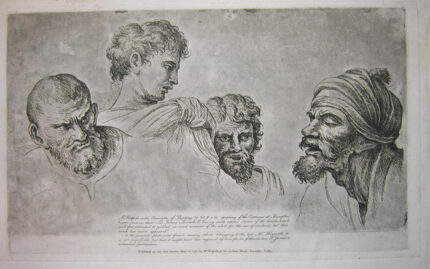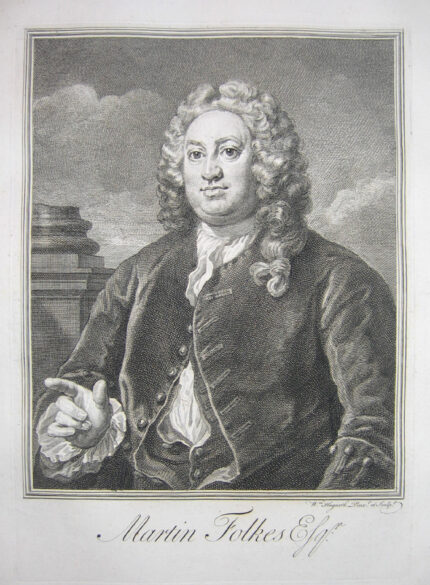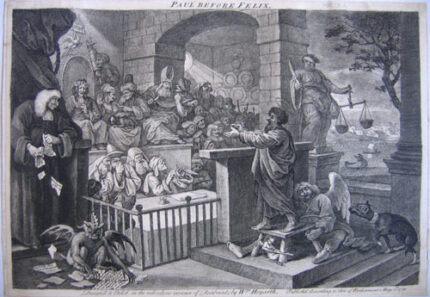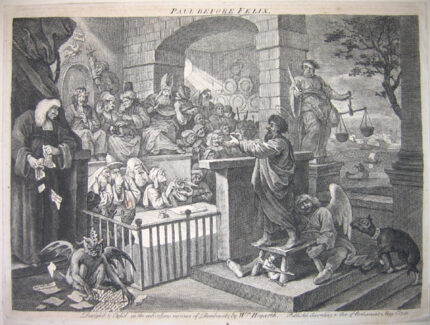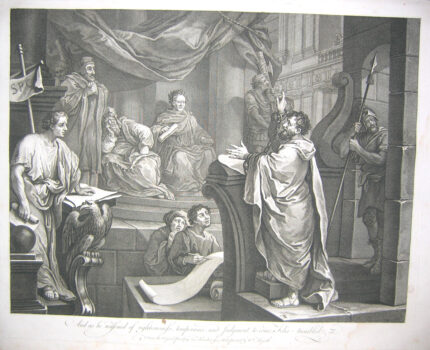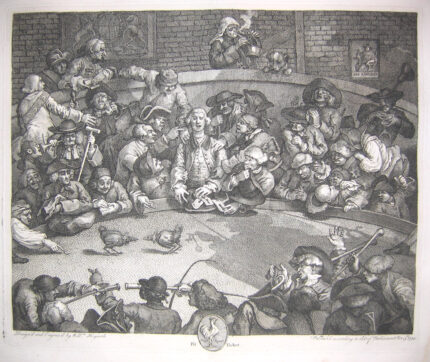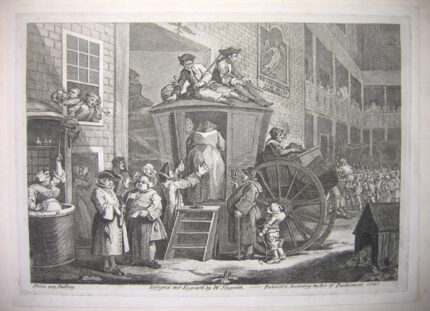Boys Peeping at Nature.
£65.00
After William Hogarth
Boys Peeping at Nature.
London ca. 1810
Engraving
155 x 120 mm
£65
William Hogarth – Boys Peeping at Nature.
William Hogarth – Boys Peeping at Nature.
Subscription ticket. Cherubs examining a statue of Diana Multimammia. Paulson 120.
Hogarth’s reworking of Boys Peeping at Nature, a print that was reused several times as the subscription ticket for his works.
The original image, executed in 1731, was done as the receipt for Hogarth’s ‘A Harlot’s Progress.’
The print depicted a group of three putti examining the antique cult statue of the Ephesian Diana.
The statue, which originally stood in the Great Temple of Artemis in the Ionian Greek city of Ephesus. Is easily identified by its multiple breasts, originally intended to emphasise the fertility and abundance of the Virgin Mother Goddess.
In the original state, one cherub paints an idealised version of the statue. While another, turning his back on Nature, draws from his imagination.
The centre of the scene originally depicted a satyr attempting to view the goddess’ genitals while the third cherub tried to hold him back.
The scene created an appropriate double entendre. Being simultaneously an exhortation for art to return to its origins, and an overt advertisement of the allure of ‘nature’ at its basest, an appropriate gloss for the forthcoming Harlot.
In 1737, the print was reused, unchanged but for its inscription, as the subscription ticket for the ‘Four Times of the Day’ and ‘Strolling Actresses.’
In 1751, the print was reworked, as it appears here, for reuse as the subscription ticket for ‘Moses brought to Pharaoh’s Daughter’ and ‘Paul before Felix.’
The original design being no longer appropriate for the mood of the new engravings. Hogarth replaced the peeping satyr with a large canvas featuring a cartoon of an idealised female portrait head and altered the appearance of the statue.
Inscription
Below the image, the inscription for the receipt reads: ‘Receiv’d of 5 Shillings being the first Payment for two large Prints one representing Moses brought to Pharoah’s Daughter, The other St. Paul before Felix.
wch. I Promise to Deliver when finish’d, on Receiving 5 Shillings more.
N.B. They will be Seven and Six Pence each Print, after the time of subscribing.’
William Hogarth
William Hogarth, (born November 10, 1697, London, England—died October 26, 1764, London). The first great English-born artist to attract admiration abroad. Best known for his MORAL and satirical engravings and paintings—e.g., A Rake’s Progress (eight scenes,1733).
His attempts to build a reputation as a history painter and portraitist, however, met with financial disappointment. His aesthetic theories had more influence in Romantic literature than in painting.

